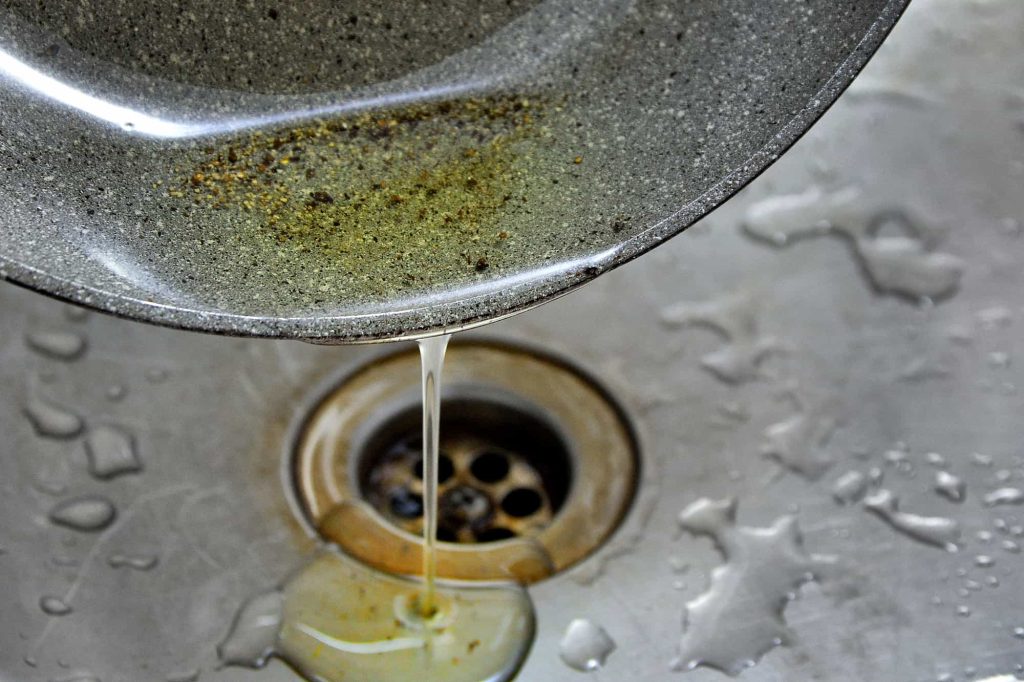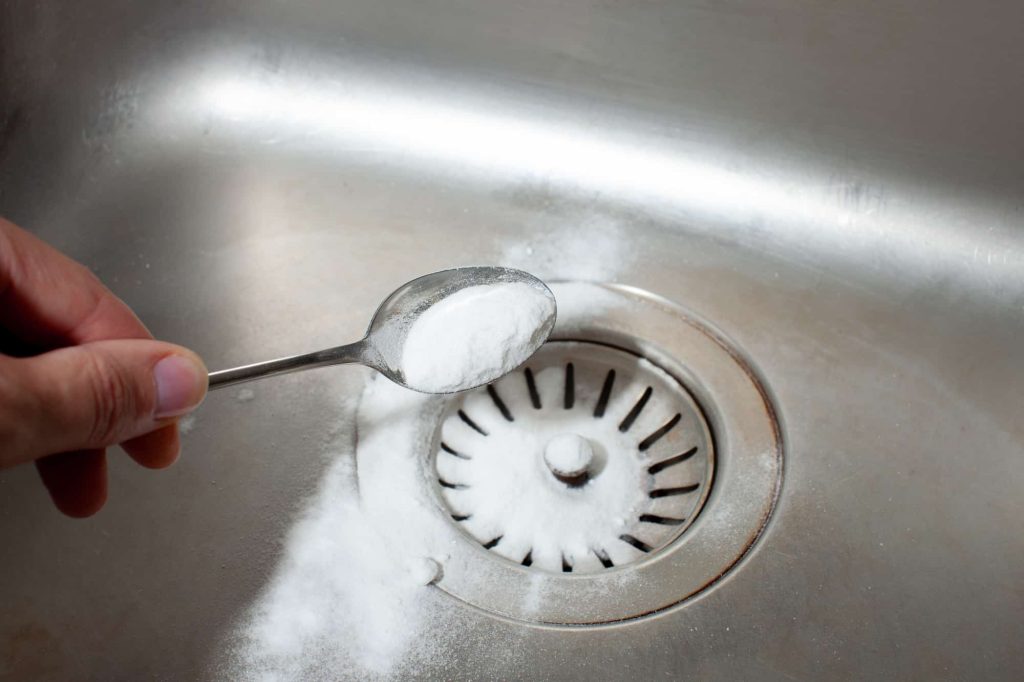Have you ever wondered how olive oil should be disposed of? It’s liquid, so it shouldn’t be bad just to dump it down the drain, right? Well, you may have to change that mindset.
You shouldn’t pour olive oil should down the drain. Even in liquid form, it can coat pipe surfaces, impeding drainage and causing clogs. It can also harden inside cooler pipes, causing cloggings and sewer problems. It may also lead to the formation of fatbergs.
Although pouring olive oil down the drain is a convenient and seemingly harmless option, it is not the best in the long run. Keep reading this article to discover why you should not do so and what you can do instead.

Can I Pour Olive Oil Down the Drain or Sink?
Several myths regarding oil disposal have led many to dump their waste incorrectly (Source: The City of Falls Church Virginia). For instance, people think that liquid oil mixes with water, so it’s alright to go down the drain. However, I am here to share why these misconceptions should be corrected.
You should not pour olive oil down the drain or sink. The same goes for any other cooking oil, grease, or fat. It can line pipes and clog them in the long run. Food particles can also stick to the pipes. Oil can also congeal with other waste to form fatbergs or giant lumps.
Rather than pouring it down the drain or sink, most government agencies or environmental organizations suggest setting up a bin or jar where you can place your oil waste (Source: Kentish Stour, NYC Environmental Protection).
You can pour the liquid oil into it or wait for the oil to harden, then scoop it out of the pan and put it into the bin. Once full, you can then dispose of it along with your trash or bring it to a recycling center.
Pouring Used Oil vs. Unused Oil Down the Drain
Oil should never go down the drain or sink, whether new or used. You might think that used oil would be safer to go down the drain than unused oil, but it can cause the same problems as the latter.
Used oil can still cling to pipe surfaces, congeal with other waste, and harden at temperatures below its melting point of -6 ºC (21.2 ºF) (Source: Michigan State University).
But why does oil harden below or melt at a specific temperature? The fatty acid composition of the oil will affect how easily it will solidify or melt.
Plant oils, like olive oils, are made up mostly of unsaturated fatty acids and have more double bonds than saturated animal oils. These double bonds create kinks that keep the oil molecules from stacking on top of each other to form a solidified structure (Source: Science Focus).
However, at their melting or freezing points, the molecules can stack on top of each other, solidifying the oil.
Because of its unsaturated nature, olive oil stays liquid in a broader range of temperatures than substances like animal fat. However, if this oil goes down a cold pipe or is drained during the cold seasons, it can solidify within the lines, causing clogs.

Is It Bad To Pour Olive Oil Down a Drain?
In many places, dumping oil, including olive oil, down a drain is highly discouraged and even illegal (Source: Merton). Immediate effects may not be noticeable, but there are many harmful, long-term effects of pouring grease down a drain.
Pouring olive oil (or any other oil, grease, or fat) down the drain is bad because of its long-term consequences. It can cause clogging in pipes and sewers, leading to flooding. It is said that 75% of the sewer problems in England and Wales are caused by oil, grease, and fat.
Aside from causing floods and sewer problems, oil poured down a drain may also end up in seas, rivers, lakes, etc. If the oil ends up in these places, it can affect aquatic life by depleting them of oxygen (Source: The Sun).
Accumulated oil, grease, and fat can also form a fatberg: a giant, jelly-like lump of waste. Fatbergs are notorious in the United Kingdom for causing immense and expensive drainage or sewer problems.
These have even led to illnesses or deaths of pets that consumed them. They are also harmful to humans, so you should report if you see one.
Long-term disposal of oil through the drain has severely affected many communities worldwide. Millions are spent clearing clogged drainages. Damages also happen due to flooding from clogged sewage pipes.
Will Olive Oil Clog My Sink?
You might start to realize just how bad it would be if we all dump oil down our drains. But if you mix the oil with water, soap, or other substances, shouldn’t it break down and be harmless?
If you often dispose of olive oil through your sink, it can clog. Oil can adhere to pipe surfaces and solidify there. It may also cause food or other particles to stick to it, restricting flow down the pipe. Even when mixed with hot water or soap, this can still happen.
Even if you manage to break down a solidified oil in your sink using hot water, soap, or other substances, these will only allow the oil to travel a bit further down before it reaches a place cold enough to harden. Food grinders are also not effective in breaking down oil.
Also, don’t think of using your toilet as an alternative place for dumping your oil. It’s still connected to the same lines as your kitchen sinks and other water systems, so it’s still the same problem in the long run.

What To Do if You Accidentally Poured Olive Oil Down a Drain?
However, if you accidentally poured oil down the drain, there’s no need to beat yourself up over it. Instead, learn from this article and start a better oil disposal habit by setting up an oil bin and throwing your oil correctly. In the meantime, here’s what you can do for the immediate situation.
If you accidentally poured olive oil down the drain, you can break it down using hot water or vinegar and baking soda. Hot water will melt the oil if it has solidified. Vinegar and baking soda may cause fizzing. Cover the drain for a few minutes if fizzing occurs, then flush with hot water.
Pouring olive oil down the drain can cause severe and long-term effects. One of the main consequences is clogging, which may lead to flooding. Avoid that by disposing of oil properly.
Wondering about the best way to dispose of loose tea leaves, whether down the sink, in the garbage disposal, or elsewhere? Explore our comprehensive guide for tips on eco-friendly tea leaf disposal methods.





Comments are closed.